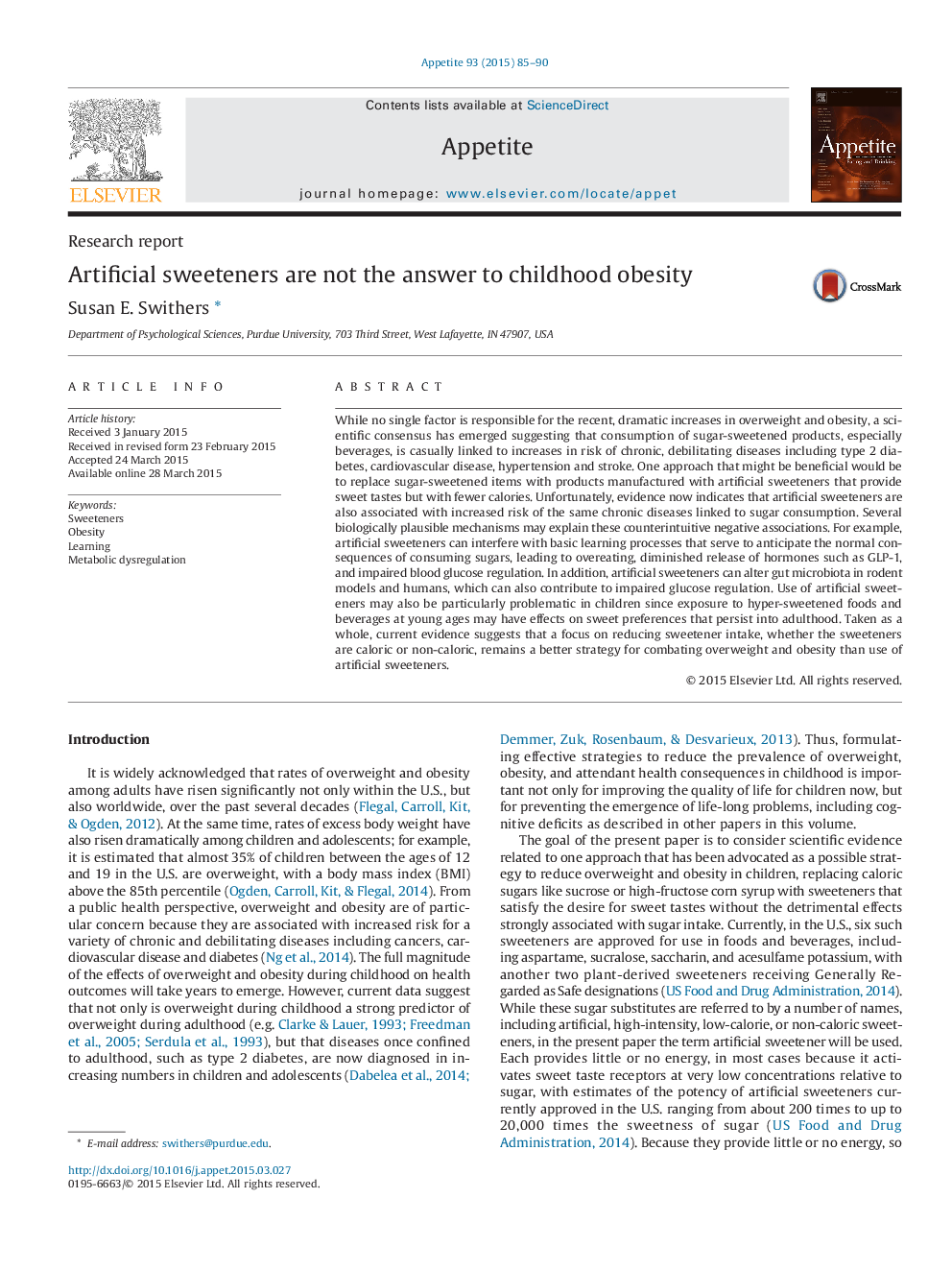| کد مقاله | کد نشریه | سال انتشار | مقاله انگلیسی | نسخه تمام متن |
|---|---|---|---|---|
| 939391 | 1475387 | 2015 | 6 صفحه PDF | دانلود رایگان |
• Children consume large amounts of sugar-sweetened beverages.
• Exposure to artificial sweeteners may promote sweet preferences in children.
• Consuming artificial sweeteners may not improve health outcomes.
• Reducing overall sweetener intake should be emphasized.
While no single factor is responsible for the recent, dramatic increases in overweight and obesity, a scientific consensus has emerged suggesting that consumption of sugar-sweetened products, especially beverages, is casually linked to increases in risk of chronic, debilitating diseases including type 2 diabetes, cardiovascular disease, hypertension and stroke. One approach that might be beneficial would be to replace sugar-sweetened items with products manufactured with artificial sweeteners that provide sweet tastes but with fewer calories. Unfortunately, evidence now indicates that artificial sweeteners are also associated with increased risk of the same chronic diseases linked to sugar consumption. Several biologically plausible mechanisms may explain these counterintuitive negative associations. For example, artificial sweeteners can interfere with basic learning processes that serve to anticipate the normal consequences of consuming sugars, leading to overeating, diminished release of hormones such as GLP-1, and impaired blood glucose regulation. In addition, artificial sweeteners can alter gut microbiota in rodent models and humans, which can also contribute to impaired glucose regulation. Use of artificial sweeteners may also be particularly problematic in children since exposure to hyper-sweetened foods and beverages at young ages may have effects on sweet preferences that persist into adulthood. Taken as a whole, current evidence suggests that a focus on reducing sweetener intake, whether the sweeteners are caloric or non-caloric, remains a better strategy for combating overweight and obesity than use of artificial sweeteners.
Journal: Appetite - Volume 93, 1 October 2015, Pages 85–90
